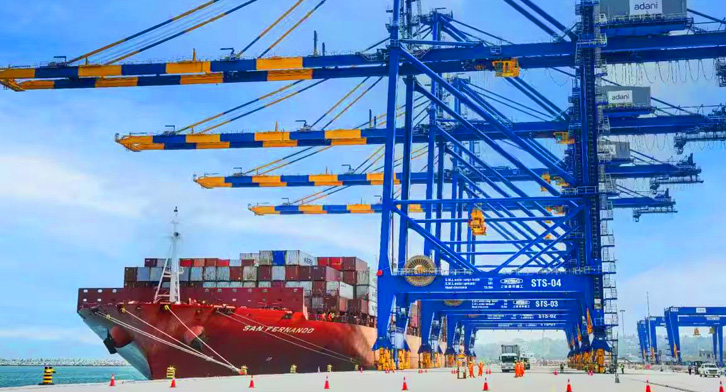
As businesses grow and expand, the logistics operations that support them become increasingly complex. To meet the demands of customers and maintain profitability, logistics businesses need to efficiently manage the movement of goods and materials across multiple locations, modes of transportation, and partners. One of the key tools that can help businesses achieve this is a freight management system (FMS).
Freight management is the process of managing the movement and transportation of goods from one location to another. It involves coordinating and optimizing various activities related to transportation, such as warehousing, inventory management, shipping, and delivery. A freight management system (FMS) is a software application that helps automate and streamline these activities to improve efficiency and reduce costs.
An FMS is a software platform that enables businesses to manage their transportation and shipping operations, from scheduling and tracking shipments to managing carrier contracts and freight bills. Here are some of the key reasons why your logistics business needs an FMS:
– Streamline Operations: An FMS can help streamline logistics operations by automating key tasks and providing real-time visibility into the movement of goods. By automating tasks such as carrier selection, shipment tracking, and invoice management, businesses can reduce manual errors, save time, and improve efficiency.
– Optimize Freight Spend: Freight spend is one of the largest expenses for logistics businesses, and an FMS can help optimize this spend by providing visibility into carrier rates and performance. By comparing carrier rates and transit times, businesses can choose the most cost-effective shipping options and negotiate better rates with carriers.
-Improve Customer Service: A well-designed FMS can provide customers with real-time shipment tracking information, delivery status updates, and estimated delivery times. This can help improve customer satisfaction by providing transparency and reducing the need for customer inquiries.
-Enhance Supply Chain Visibility: An FMS can provide end-to-end visibility into the supply chain by integrating with other systems such as warehouse management systems (WMS) and enterprise resource planning (ERP) systems. This can enable businesses to identify bottlenecks and optimize processes across the entire supply chain.
-Reduce Risk: A robust FMS can help logistics businesses reduce risk by ensuring compliance with regulations and mitigating risks such as freight loss or damage. By providing accurate documentation, shipment tracking, and carrier performance data, businesses can minimize the risk of freight claims and disputes.
Freight management system (FMS) is a crucial component of logistics operations in the transportation industry. It involves the efficient and effective management of freight movement from the point of origin to the point of destination. A good FMS can streamline the entire transportation process, reducing costs and increasing productivity.
There are several key steps involved in how an FMS works. The first step is to receive the order from the customer, which could be for a single shipment or a series of shipments. Once the order is received, the FMS creates a shipment plan, which includes the mode of transportation, the route, and the carrier.
The next step is to execute the shipment plan by coordinating with carriers, scheduling pick-up and delivery, and monitoring the movement of the freight. During this process, the FMS tracks the shipment, ensuring that it stays on schedule and that any issues that arise are promptly addressed.
In addition to the shipment management, FMS also handles documentation, such as bills of lading, invoices, and customs paperwork. This helps to ensure that all necessary paperwork is completed accurately and on time, reducing the risk of delays and fines.
Order Creation: The system starts with order creation where the shipper creates an order in the system by specifying the pickup and delivery locations, shipment details, and other requirements.
Carrier Selection: Once the order is created, the FMS searches for carriers that can fulfill the requirements of the order. The system considers carrier capacity, mode of transportation, transit time, and other factors to find the best match.
Shipment Booking: Once a carrier is selected, the FMS sends the order details to the carrier for confirmation. The carrier confirms the booking, and the system generates shipping documents such as bills of lading, delivery receipts, and invoices.
Shipment Tracking: As the shipment moves through the supply chain, the FMS tracks the shipment’s status and location. The system updates the shipper and carrier on the shipment’s progress and alerts them if any issues arise.
Payment and Settlement: Once the shipment is delivered, the FMS generates an invoice for the shipper and a payment request for the carrier. The system then reconciles the payments and settles any outstanding balances.
Freight management plays a vital role in the supply chain process, and its efficient management can lead to significant cost savings, streamlined operations, and increased customer satisfaction. To achieve this, companies are increasingly turning to freight management systems, which use technology and automation to optimize the transportation and logistics processes.
1.Improved Visibility: A good FMS can provide real-time visibility into the entire supply chain, from order placement to delivery. This enables businesses to track shipments, manage inventory, and optimize shipping routes in real-time.
2.Increased Efficiency: By automating many of the manual tasks involved in freight management, an FMS can help businesses reduce operational costs and improve productivity. For example, it can automate billing, generate shipping labels, and track inventory levels.
3.Enhanced Customer Service: An FMS can help businesses improve their customer service by providing accurate delivery estimates, tracking information, and proof of delivery. This helps to build trust with customers and can lead to repeat business.
4.Reduced Errors: Manual freight management is prone to errors, such as incorrect shipping labels, missed pickups, and late deliveries. An FMS can help to reduce these errors by automating many of the processes involved.
5.Better Cost Management: An FMS can help businesses manage their shipping costs more effectively by optimizing shipping routes, comparing carrier rates, and identifying opportunities to consolidate shipments. This can lead to significant cost savings over time.
In conclusion, a Freight Management System (FMS) is an essential tool for any logistics business that wants to operate efficiently and stay competitive in today’s market. By automating and streamlining freight operations, an FMS can help reduce costs, improve shipment visibility, optimize carrier selection, and enhance overall customer service.
With the increasing complexity of supply chain networks and the growing demand for fast, reliable, and cost-effective transportation services, it’s crucial for logistics companies to adopt a modern FMS that can handle the complexities of today’s logistics landscape. By doing so, businesses can not only stay ahead of the competition but also meet the evolving needs of their customers and provide a seamless experience that keeps them coming back.
Therefore, if you’re running a logistics business and haven’t yet implemented a Freight Management System, it’s high time you do so. With the numerous benefits it offers, an FMS can help you streamline operations, reduce costs, and improve overall efficiency, ultimately leading to a more successful and profitable business.
Yes! The Reports can export to PDF format, Excel, Word Format etc.
Yes! B/L print outs can be taken in a Single click
Freight forwarders provide their customers with a range of services including consolidation, documentation, freight payment and customs clearance. The service is offered by freight forwarders who serve as an intermediary between the shipper and the forwarder’s transportation network.
The world is calling, but the struggle with complex international exports can be overwhelming. Shipping software allows you to:
Optimize systems: Automate operations, expand productivity, and increase accuracy.
To achieve global ordering: Track inventory in real time; compatibility with global networks; and make decisions based on data.
Enhanced customer service: Respond quickly, provide clear information, and rise above language issues.
Choose the right freight forwarding software to open your company to global growth.
Choosing the right freight software is like choosing your superhero gear – it empowers you to handle complex logistics and soar to new heights. Here are some basics to ensure your software is a real winner:
Effortless Shipping: Imagine recording, tracking and reporting on shipments with a few clicks. Your software may simplify these processes, freeing you up to focus on bigger things.
Simplified bookkeeping: Creating accurate quotes, invoices, and report cards is unlike paper invoices. Look for software that simplifies paperwork and keeps everything organized.
Strong customer relationships: A robust CRM system in your software allows you to manage customer interactions, send personalized communications, and foster strong relationships – the foundation of any successful business.
Data push decisions: Your software program can be your own record analyzer. Look for features that provide insightful analysis of overall performance, identify trends, and empower your company to make informed choices.
Easy conversation: Does your software play well with others? Integrating accounting, CRM and visit management systems improves information flow and eliminates accounting silos – a huge win for efficiency
By installing those essential components, you equip your logistics with the software muscle needed to overcome any system challenges and achieve breakthrough success
A quantity of steps are worried in integrating and employing freight forwarding software program (CargoNet) inside your commercial enterprise, these encompass:
Evaluation and Planning: Assess the existing freight forwarding processes in your organisation and discover regions to be stepped forward. Establish your precise requirements and dreams for imposing CargoNet software program application. Develop a plan of implementation along with timeframes, sources and key individuals.
Customization and Configuration: Collaborate with our implementation group in order to personalize the software program in line with the workflows or processes used by your very own organization. Set up configurations, user privileges, in addition to connections to other systems employed across your business enterprise.
Data Migration: Prepare your present day Freight Forwarding statistics for migration into CargoNet. Make certain that statistics is accurate and sound by way of purging it off old data even as formatting it efficaciously



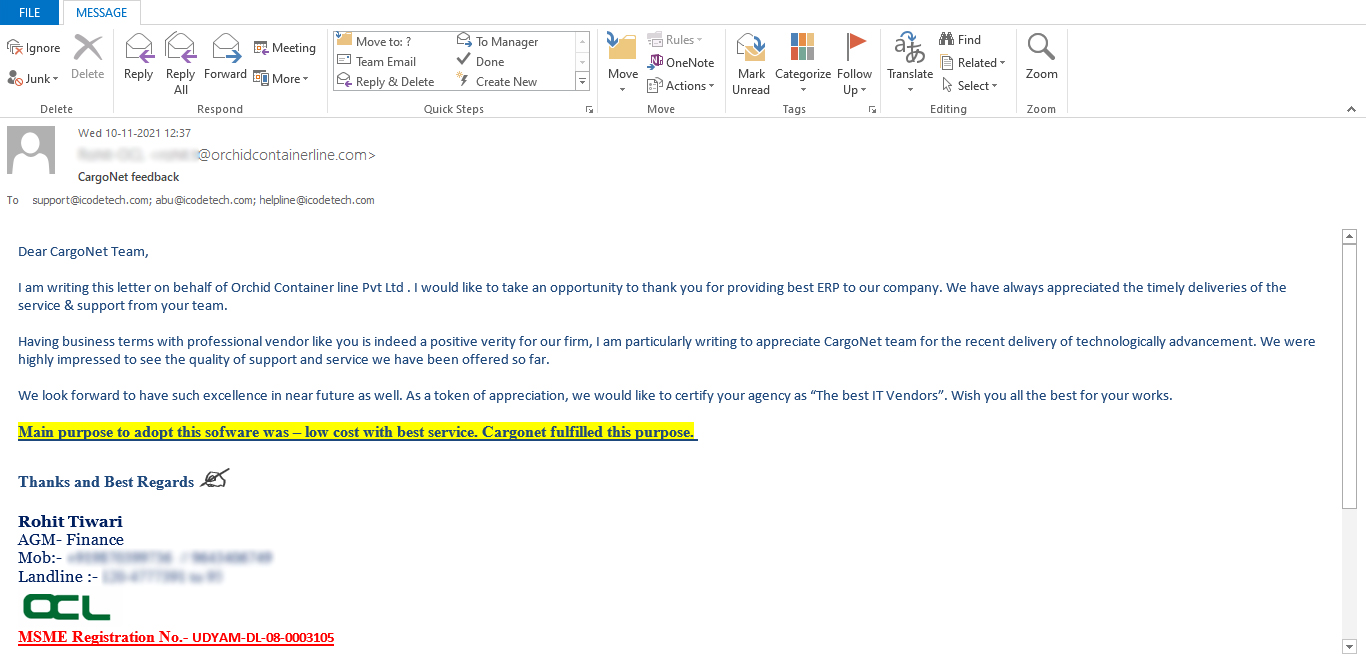
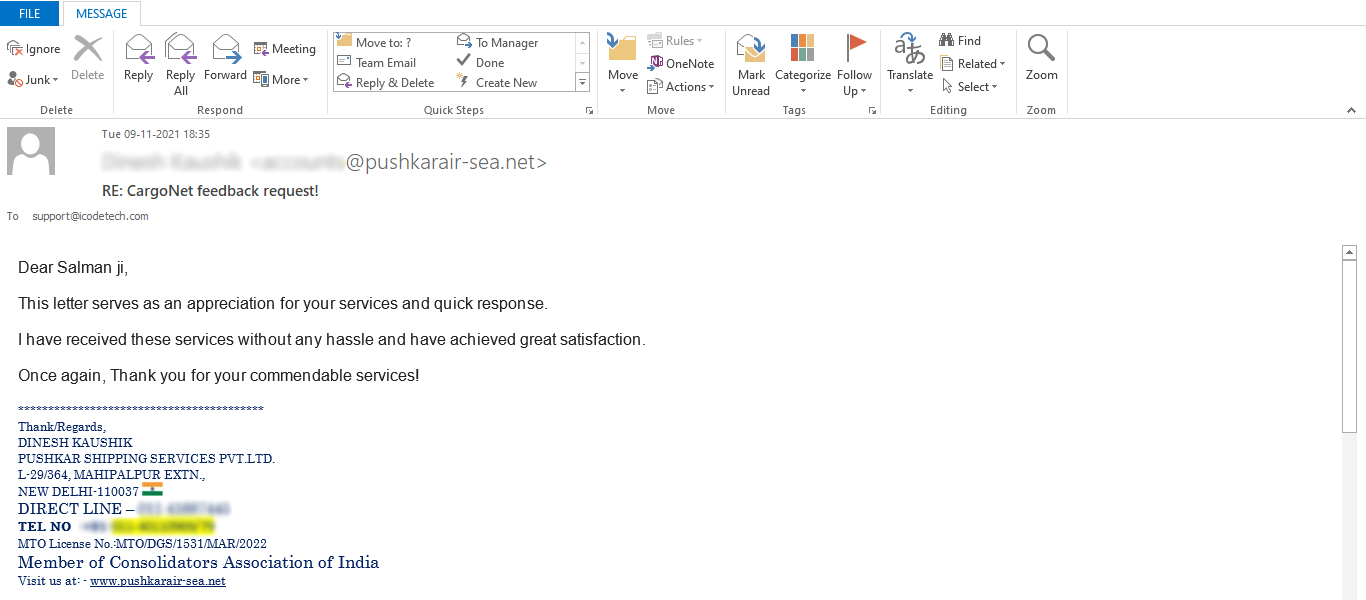
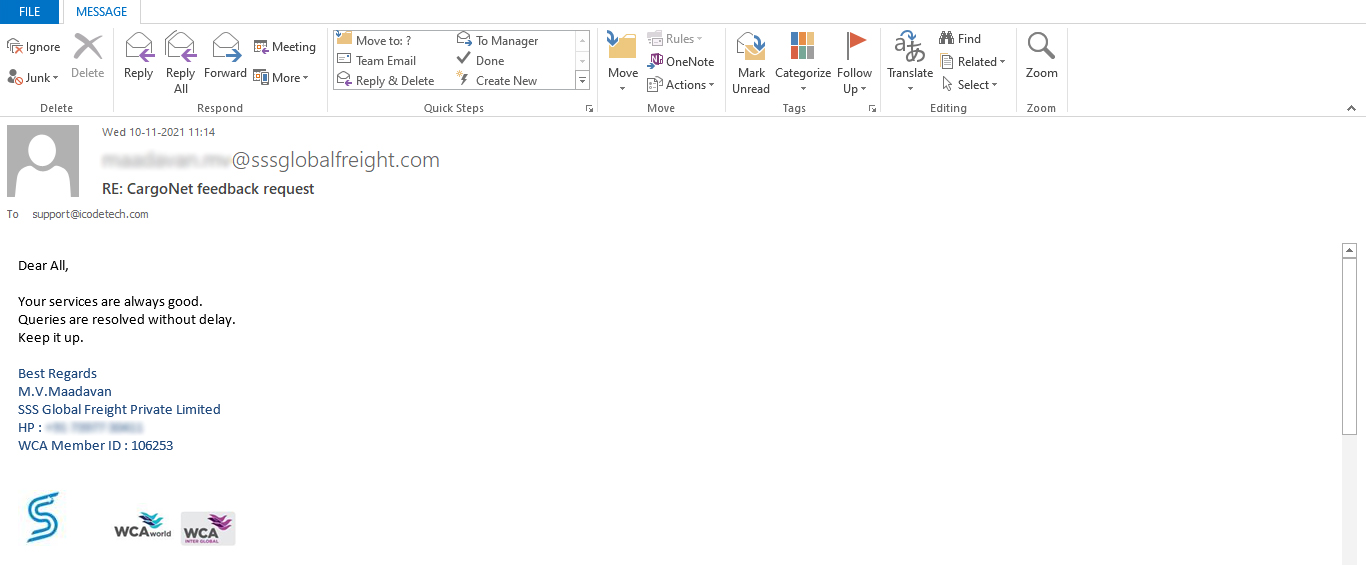
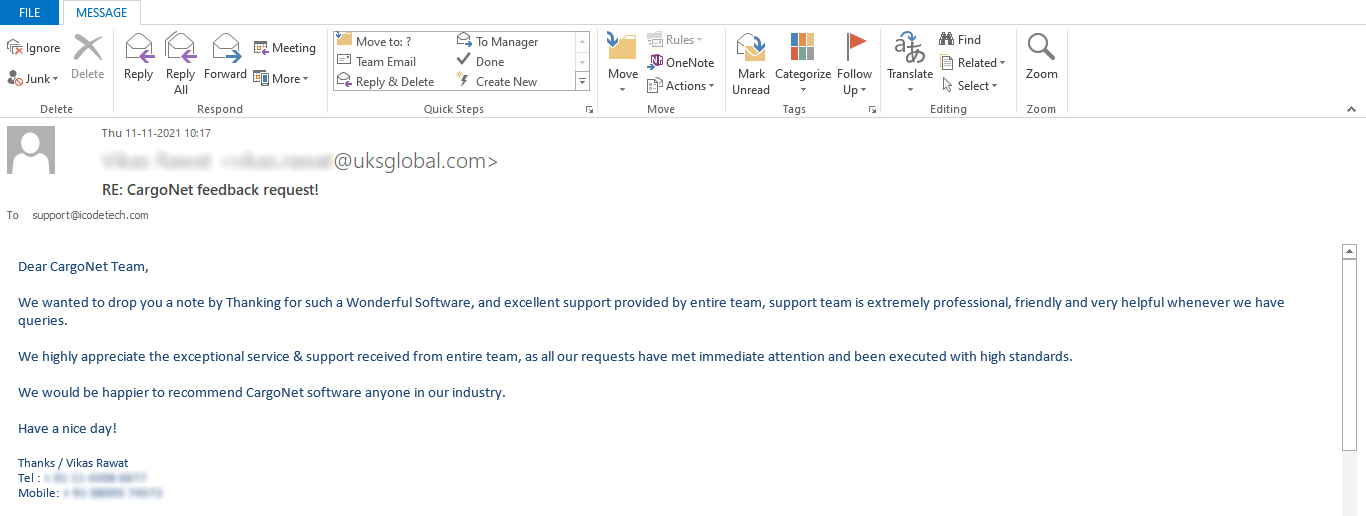
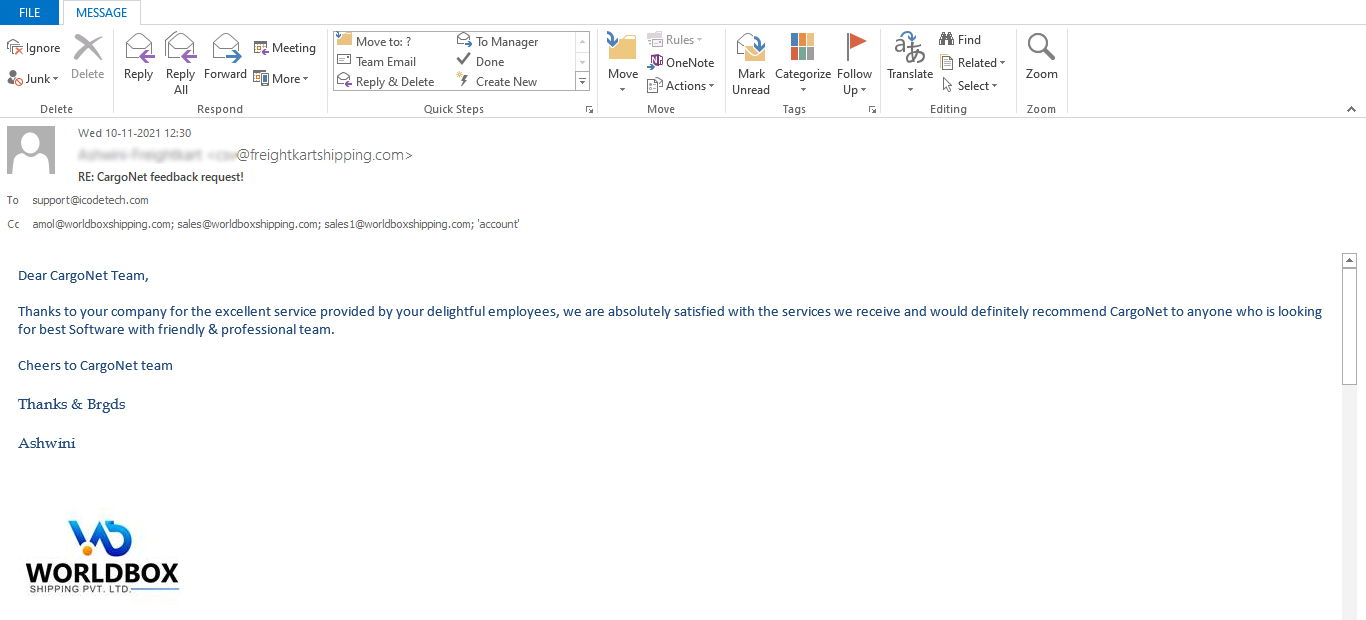
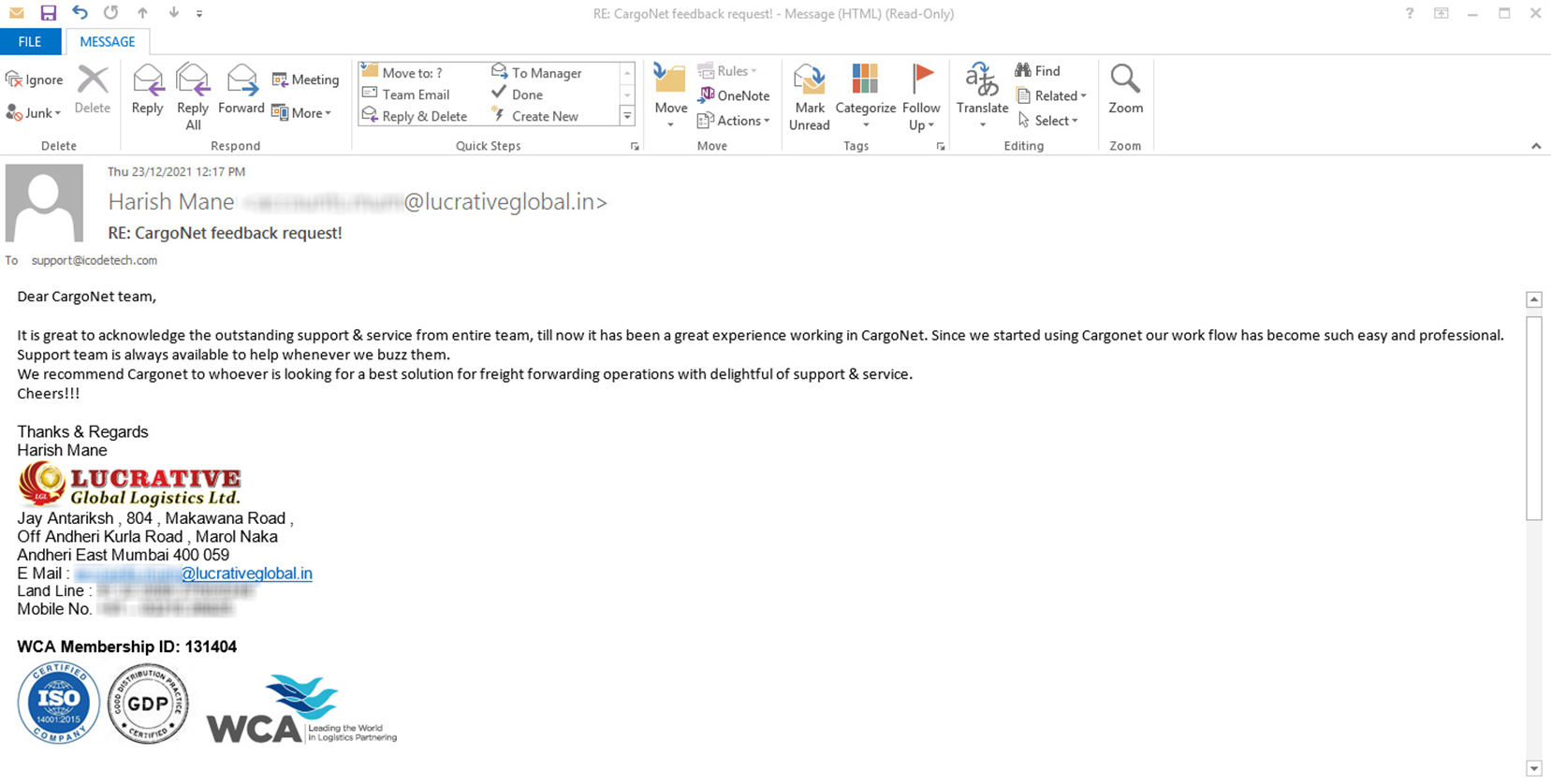

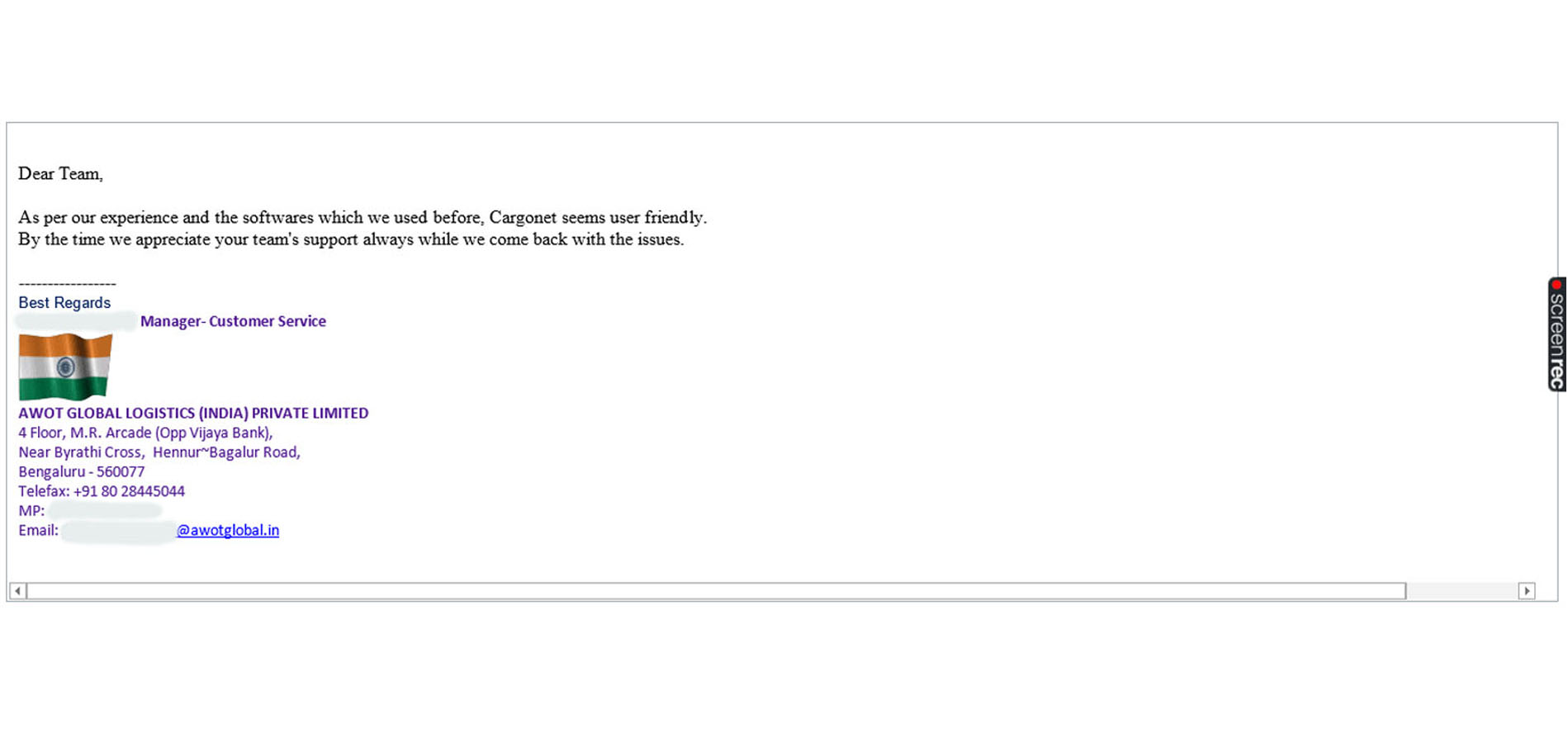

Share your information for instant access :